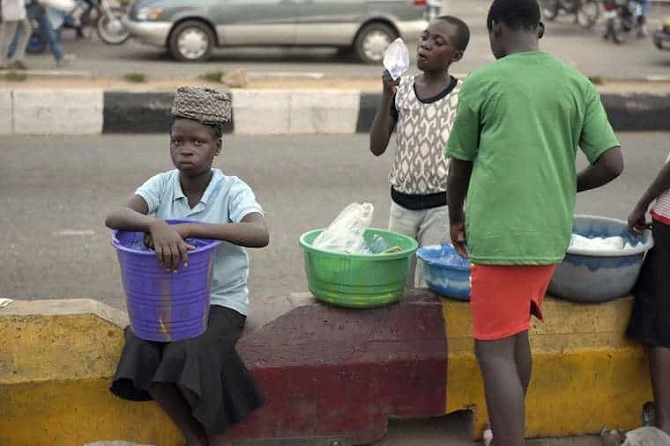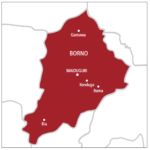As it does now and again, the issue of out-of-school children in Nigeria has popped up again, like a seasonal flower that blossoms in the rainy season and perishes in the harmattan. It is just the conversation that comes and goes, but the problem, like a stubborn root, remains.
This week, the Minister of State for Education, Yusuf Sununu, while speaking in Bauchi at the state’s education summit, lamented that “The rising figure of out-of-school children in Nigeria and most particularly in the northern part of Nigeria is not only unacceptable but disheartening.”
It is a bold statement. It is also a redundant one. There is nothing new in that statement. Every minister of education in Nigeria has said something in that line. They have also added that there is a need for “concerted efforts” to address the situation. They also must have used the words, “ticking time bomb.”
When you have an estimated 10.2 million children out of school, which translates to one in every three children in the country, that is a worrying figure. What is even more worrying is that despite the proclamation from one minister to another, from one government to another, these abominable numbers have hardly decreased. The out-of-school children of yesterday who graduate into uneducated adults in the population of today are replaced by a fresh batch of out-of-school children. That is not exactly how these things are supposed to play out.
The United Nations Children’s Fund (UNICEF) is reporting that 12.4 million Nigerian children have never attended school in their lives and 5.9 million left school prematurely. Of the global population of out-of-school children, Nigeria, like a hungry lion, corners 15 percent.
It is no coincidence that the majority of these out-of-school children are in the north, which explains why the minister made that proclamation in Bauchi. There has been an obstinate religio-cultural belief system that has nurtured these numbers. Since the colonial conquest of 1903 that ended the Sokoto Caliphate with the killing of Sultan Attahiru, the average northerners’ distrust of the West, and by extension Western culture and its education system has been tenacious.
Yet, ironically, the last Sultan without formal education to ascend the Sokoto throne, Sultan Abubakar Siddiq III was turbaned in 1938. That was over a century ago. Every Sultan since then has had a formal education. (Not forgetting that Sultan Abubakar had a long reign that only ended in 1988).
One of the problems with the North has been this reticence to engage with Western education, largely because it was pioneered by Christian missionaries and the two—Christianity and Western education—were seen as synonymous. In a region with a vast Muslim majority, this reticence, especially in those early days was inevitable and remains the seed capital that terror groups like Boko Haram have cashed in on to propagate their misguided ideologies.
Subsequently, however, with the establishment of colonial administration and the northern regional government, poor policy choices and a lackadaisical approach to policy implementation, when these policies were eventually enacted, helped very little.
For instance, when the colonial government proposed free education in 1948 and this programme, the UPE, rolled out in the Western region in 1955 and Eastern region in 1957, funded by the regional governments, the Northern Region took a different approach.
Ironically, the Northern Regional Government decided to only require a few urban areas to make financial contributions to the regional government to underwrite education funding. The consequence was that schools outside of these urban areas relied on grants from the regional government to function. However, these funds were inadequate to meet the cost of expansion in the expansive region. Most of the Native Authorities, except Adamawa and Keffi, began to charge fees, especially for later stages of primary education.
By the time the Northern states began free education, well after independence, cultural mistrust of the system had been reinforced instead of eroded. The North has been playing catch-up since. By the time these policies were implemented and funds were made available, including school feeding programs to encourage student enrolment, the reluctance was deep-rooted, and the people who should have enforced it undermined it.
A friend who served in Kebbi in the 1990s was perplexed when he was advised by a local councilor not to influence the people who were already set on their ways. Perplexed, the corps member soon realised that despite lunch being provided for students in the council, enrolment levels remained low and the people he spoke to about sending children to school seemed perplexed by the logic. Why do they need to when their children would be more useful to them on the farms? It didn’t take long to realise that the local councillor and his ilk were actively discouraging people from attending schools so they, the few educated ones, remained politically relevant and continued to control allocations to the council.
More recently, we saw the opposition that the Jonathan administration endured over its Almajiri school programme, to which the government committed billions to build specialized schools designed to accommodate Alamajirai, who form the bulk of these out-of-school children and train them in both formal and their Qur’anic education. This would have taken them off the streets and away from begging which is synonymous with their traditional education system. Within years, those schools have fallen into ruins because the local governments are not committed to the programme. Many of them have since closed.
While the newly established National Commission for Almajiri and out-of-school children will have to be aggressive and consistent in pursuing its mandate, there is a need for a more deliberate public awareness campaign to disabuse the minds of parents who are reluctant to send children to school. At the same time, indigent parents who can’t afford to send children to schools because they would rather put them to service as hawkers to help the family out, need to be persuaded. While there are laws criminalising denying children education in the country, none of those laws have been diligently enforced.
The number of out-of-school children, as the minister said, is unacceptable. What should be even more unacceptable is another minister of education in the next four or eight years, repeating the same claim. If we don’t get this right, with our population projected to cross 300 million by 2036, then we are in for some big trouble.




